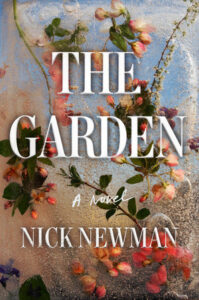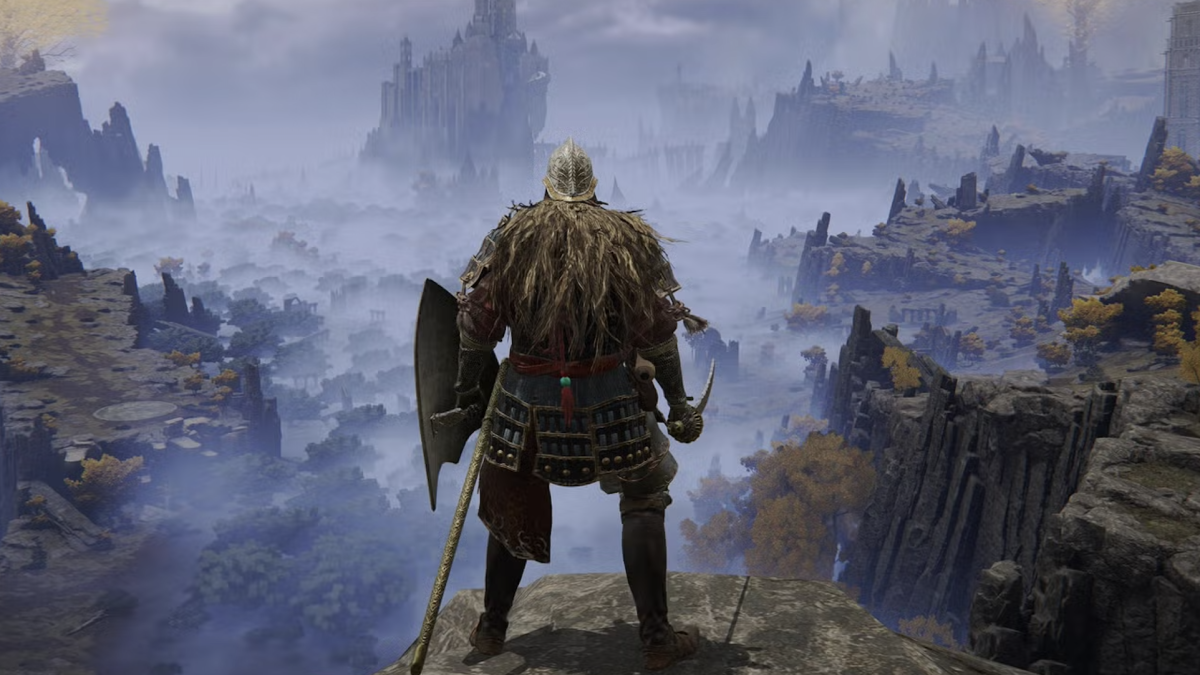“I can’t write every day. Some days I wake up and don’t feel like doing it, so I see a movie, or play video games, or walk sadly down the promenade.”
Article continues after advertisement
Not my words—though they could be, right down to the picture of the melancholy stroll, which I can tell is only partly ironic—but the words of Pulitzer Prize-winner Colson Whitehead. How reassuring, to hear a bona fide Voice Of The Nation™ speak so candidly of his process. What a relief, to hear his admission that, no, he doesn’t write every day; that some days he just doesn’t feel like doing it; that, most importantly, when he can’t face the blank page, he plays video games.
I love, and have always loved, video games. I also write novels that try as far as possible to engage seriously with the world. These two facts have never sat particularly easily with me, or each other. Whether games can be considered meaningful pieces of art seems an old-fashioned, almost quaint sort of question to pose in 2025 (short answer: yes, and I have wept more often at a videogame than I have at a book) but the stigma of being a “gamer” lingers. Hearing a heavyweight like Colson Whitehead speak with such throwaway ease of his hours spent in front of his gaming PC (he played XCOM for six weeks straight after finishing Nickel Boys) went some way to convincing me that there really was no dilemma, no circle that needed squaring.
The more I think about it, the more it seems clear that I wouldn’t even be a writer without games.
We contain multitudes, and the picture of the grave, monolithic, pontificating “novelist” seems as out-of-touch as the question about whether games are art. No, Cormac McCarthy was probably not playing World of Warcraft in between drafts; but how refreshing that the author of The Underground Railroad, perhaps, does. How unburdening it is to confess that, on the eve of the publication of The Garden—a novel about love, and death, and ageing, and a burning planet—I took a break from my Nintendo Switch to Google: “what is the difference between Ganon and Ganondorf.”
This is about more than just accepting—or tolerating—the part of me that plays, takes joy in, and is moved by videogames. The more I think about it, the more it seems clear that I wouldn’t even be a writer without games. I started my career writing children’s books, and at least part of that impulse was to try and replicate the kind of feelings I had playing games as a child—of being fully transported, fully immersed in a different world. (It’ll come as no surprise that Colson and I both grew up on a diet of science fiction, fantasy, comics). It’s what I look for in my “grown up” books, too—whether writing or reading them.
Fantasy games are a good place to start, then. Sometimes I have this thought: that the reverie I experienced as a thirteen-year-old playing The Legend of Zelda: Ocarina of Time is something I’ve been chasing creatively my whole adult life. The peculiar imagination of it all, the wonky sense of humor, the thrills, the terrors, the sadness of Link’s slow abandonment of his childhood. (I could write an essay as long as this one just about the moment Link steps out the Temple of Time into the ruined marketplace—I’m just going to assume you’re au fait with what I’m talking about.)
Above all there is the wonder of seeing the clouded map of the world unfolding, the journey from innocence to experience. These kind of narrative role-playing adventures have been absolutely central to my life and work, and the best of them—Zelda, The Witcher, Skyrim, Dark Souls, Elden Ring—can feel not just like escaping into a different world, but also (over many, many hours) like a coming-to-terms with that world, and this one. An entire life in microcosm.
It’s not just the worlds of videogames that inform my writing—they can also be vessels for incredible writing in their own right. I’ve played a few games that feel like novels. A game like Red Dead Redemption seems in some ways closer to the novel than to film or TV—it is Protean in its nature, it shifts to accommodate the player and their will. As such, a game like this is almost better suited to ambivalence, to complexity, to nuance than many other narrative forms.
Red Dead Redemption and its sequel blew my mind wide open to the artistic potential of video games. The writing is exquisite, from the arcs of its morally ambiguous characters (what a brilliant piece of storytelling, to make you play as a someone who knows he will die of tuberculosis, in a medium whose whole purpose is to offer your character immortality) down to the whip-smart dialogue (“Five thousand dollars? For me? Can I turn myself in?”) I sympathized with every character in this game, and cared for many of them. I fell in love with the world, too, and worried for its future. And yes, when my horse died, I wept.
I won’t list all the games I’ve played whose writing is wonderful, and enviable. But I’ll single out one more: What Remains of Edith Finch remains perhaps the finest, oddest, most moving, most dreamlike gaming experience of my life. I would love to write a novel that was half as good. An elegiac story of a “cursed” family whose last remaining daughter returns to her childhood home to dig deeper into the secrets of her ancestry, Edith Finch is part We Have Always Lived In The Castle, part Royal Tenenbaums, part Peter Pan.
It is sad, it is funny, it is wildly imaginative. It feels like stepping into someone else’s dream, or rather, several peoples’ dreams—Edith uncovers the truth of her family through unlocking their bedrooms and reading fragments of their diaries, allowing her (us) to enter into their memories, their hopes, their regrets, each one a smaller story embedded in the whole. The conceit allows for the game to exercise every muscle of its bizarre imagination. You will play, briefly, as a giant squid. You will play as a baby abandoned in a bathtub. You will play as burnt-out twenty-something experiencing full, technicolor psychosis on the production line of a fish cannery. Here, again, is all the world.
Games, as much as other books, are always forcing me to re-examine my craft.
What Remains of Edith Finch brings me to what I find perhaps most inspiring about games—their ability (ironically) to tell stories in ways that aren’t available to me. I’m fascinated by (and, again, envious of) the marvelous, ingenious storytelling devices that are only possible thanks to the mechanics of the video game. The idea of narrative-through-discovery, used so dreamily in Edith Finch, is pushed to its absolute limits in something like Elden Ring. I am hardly the first to praise the design of this game, but for the uninitiated: Elden Ring (along with most of developer FromSoft’s titles) has perhaps the most intricate, absorbing, harrowing story of any fantasy game, or novel for that matter. It just doesn’t tell you what it is.
In playing the game you are as much archaeologist as protagonist—you uncover the impossibly dense lore through items and their descriptions, through terse and obtuse conversations with characters who would rather kill you than talk to you. Often it occurs to me that my novel, The Garden, is either consciously or subconsciously trying to emulate these kinds of techniques. It unfolds like a video game, in some respects. You are dropped into a world you do not recognize. There are rules to the world; there is a map. You discover by exploring, like Evelyn does. There are areas that are forbidden, areas that are not. Items are found. Locked doors are unlocked.
And then there are games whose “writing” does not use words at all. Journey, Limbo, Neva—all experiences that moved me without a single line of dialogue or piece of text, and masterclasses in that old adage of storytelling: show don’t tell. The story of my own writing career has been one striving for greater concision, for saying more with few words, for writing more with the heart and less with the brain. Video games like these set the bar for deft, concise storytelling impossibly high, but are no less inspiring for that.
What is the story of a game like Journey? A person, creature—nameless, genderless—sees a far-off mountain and sets off towards it. They cross a desert; they sink into an abyss; they climb the mountain, having overcome many obstacles. That is the entire “story.” But, as many others have attested to, this game also had me in tears. How? What could be done in a novel or short story to achieve such emotional heft with so few brushstrokes? Games, as much as other books, are always forcing me to re-examine my craft.
In my early twenties, I started and aborted more novels than I care to admit. Each was more pretentious, more portentous than the last. My writing career only really started when somebody lent me a fantasy book—The Name Of The Wind—and I remembered that a) writing should be fun, b) my first loyalty as a writer should be to the story. Thinking about games in relation to writing novels, then, is perhaps simply the same epiphany—that the act of writing, however serious its intention, is always a form of play.
__________________________________

The Garden by Nick Newman is available from Putnam, an imprint of Penguin Publishing Group, a division of Penguin Random House, LLC.
